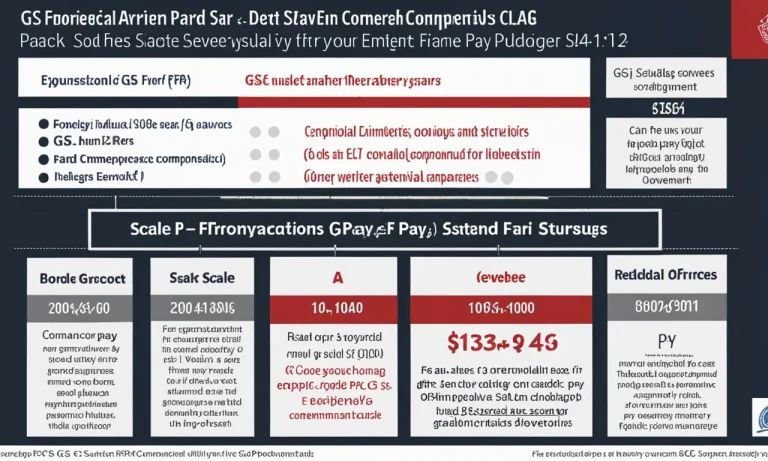Is Black Friday Considered Holiday Pay?
The day after Thanksgiving has become one of the biggest shopping days of the year, with retailers offering major discounts to kick off the holiday season.
But with many employees working long hours on Black Friday, an important question arises: is working on Black Friday the same as working on a holiday when it comes to holiday pay?
If you’re short on time, here’s a quick answer to your question: Working on Black Friday does not automatically qualify for holiday pay. Employers are not required to provide extra pay for working on Black Friday since it is not an official holiday.
In this comprehensive guide, we will explore whether Black Friday is considered a holiday for pay purposes. We will look at federal holiday pay laws, retailer policies on Black Friday pay, how to check your state laws, and strategies for negotiating holiday pay on Black Friday.
Federal Laws on Holiday Pay
What Federal Law Says About Holiday Pay
When it comes to holiday pay, federal laws do not mandate that employers provide additional pay to employees who work on holidays.
The Fair Labor Standards Act (FLSA), which is a federal law that sets standards for minimum wage and overtime pay, does not require employers to pay employees extra for working on holidays.
However, it is important to note that some states may have their own laws regarding holiday pay, so it is essential for employees to familiarize themselves with the laws specific to their state.
Under the FLSA, employers are only required to pay employees for the hours they actually work. Therefore, if an employee works on a holiday, they are entitled to their regular pay for those hours, but there is no requirement for additional compensation.
Black Friday is Not a Federal Holiday
Contrary to popular belief, Black Friday is not recognized as a federal holiday. While Thanksgiving Day is a federal holiday, Black Friday is not. This means that employers are not legally obligated to provide holiday pay or additional compensation to employees who work on Black Friday.
Many employers, however, choose to offer special incentives or bonuses to employees who work on Black Friday as a way to reward their dedication and hard work during this busy shopping period. These incentives can vary from company to company and are not mandated by federal law.
If employees have questions or concerns about holiday pay, it is recommended that they consult their employee handbook or speak with their employer to understand the specific policies and practices regarding holiday pay at their workplace.
For more information on federal laws and regulations related to employment, the U.S. Department of Labor website is a valuable resource to consult.
Retailer Policies on Black Friday Pay
Many Retailers Provide Incentives
Black Friday, the day after Thanksgiving, is one of the busiest shopping days of the year. As a result, many retailers offer various incentives to motivate their employees to work on this hectic day.
While not all retailers provide additional pay specifically for Black Friday, many do offer incentives such as time-and-a-half pay, bonuses, or commission boosts. These incentives serve as a way for retailers to reward their employees for their hard work and dedication during this high-demand period.
Some retailers, like Walmart and Target, have implemented special programs to encourage employees to work on Black Friday.
For example, Walmart’s “Holiday Helper” program offers associates the opportunity to earn extra money by volunteering to work on specific days, including Black Friday.
This program allows employees to increase their hourly pay rate for those select shifts, providing them with additional compensation for their efforts.
But Incentive Pay Varies
While many retailers offer incentives for employees who work on Black Friday, the specific policies and compensation can vary widely. Some retailers may offer a flat bonus for working on this day, while others may provide time-and-a-half or double pay for the hours worked.
Commission-based employees, such as those in the electronics or jewelry departments, may also receive additional incentives based on their sales performance during the Black Friday rush.
It’s important for employees to familiarize themselves with their company’s policies regarding Black Friday pay. This information can typically be found in the employee handbook or by consulting with human resources.
Additionally, it’s worth noting that state laws and regulations may also impact how employers compensate their employees on Black Friday. It’s always a good idea to check with local labor laws or consult with a legal professional to ensure fair compensation.
State Laws on Holiday Pay
When it comes to holiday pay, the laws can vary from state to state. Some states have specific regulations in place that require employers to provide holiday pay to their employees, while others do not have any such requirements.
It is important for both employers and employees to familiarize themselves with the laws in their respective states to ensure compliance and to understand their rights and obligations.
Some States Require Holiday Pay
In certain states, employers are legally obligated to provide holiday pay to their employees.
For example, in California, employers are required to pay employees for holidays such as New Year’s Day, Independence Day, and Christmas Day, regardless of whether the employee works on those days or not. Similarly, in New York, employers must provide holiday pay for specific holidays, including Thanksgiving and Christmas.
Other states, such as Massachusetts and Rhode Island, also have laws in place that mandate holiday pay for certain holidays. In these states, employers are typically required to pay employees at least one and a half times their regular rate of pay for working on designated holidays.
Check Your State’s Rules on Black Friday
Black Friday, the day after Thanksgiving, is one of the busiest shopping days of the year. However, whether it is considered a holiday for the purpose of holiday pay depends on the state in which you reside.
Some states may have specific rules regarding Black Friday as a holiday, while others may not.
For example, in some states like Maine and Massachusetts, Black Friday is considered a holiday, and employers may be required to provide holiday pay to employees who work on that day. On the other hand, in states like California and New York, Black Friday is not recognized as a holiday for the purpose of holiday pay.
To determine whether Black Friday is considered a holiday in your state, it is advisable to check with your state’s labor department or consult an employment attorney. They can provide you with accurate information regarding your rights and entitlements as an employee on Black Friday.
Remember, it is always important to stay informed about the laws and regulations in your state to ensure that you are receiving the proper compensation for any work you perform on holidays.
Negotiating Holiday Pay for Black Friday
Make Your Case for Holiday Pay
Black Friday, the day after Thanksgiving, is considered one of the busiest shopping days of the year. It’s a day when retailers offer significant discounts and promotions to attract shoppers. With the long hours and increased workload that comes with Black Friday, many employees wonder if they are entitled to holiday pay for working on this day.
While there is no federal law requiring employers to pay extra for working on Black Friday, it is important to understand that holiday pay is typically determined by company policies or employment contracts. Some employers may offer additional compensation or time off in lieu of holiday pay for employees working on Black Friday.
It is crucial to review your employment contract or company handbook to see what your rights and entitlements are regarding holiday pay.
When making your case for holiday pay, consider the following:
- Highlight the increased workload and long hours on Black Friday.
- Show how your contribution is crucial for the success of the company on this busy shopping day.
- Point out any previous company practices or policies that support holiday pay for employees on Black Friday.
- Emphasize the importance of fair compensation and recognition for your dedication and hard work.
By presenting a well-reasoned argument, backed by evidence and a clear understanding of your company’s policies, you increase your chances of negotiating for holiday pay on Black Friday.
Know Your Leverage
When negotiating for holiday pay on Black Friday, it is important to know your leverage. Leverage refers to the power and influence you have in the negotiation process. Here are some factors that can give you leverage:
- Market demand: If you are in a high-demand industry or hold a specialized skillset, you have more bargaining power.
- Company policies: If your company has a history of providing holiday pay or compensation for working on Black Friday, you can use this as leverage.
- Employee retention: If you are a valuable employee with a good track record, your employer may be more willing to negotiate to retain you.
- Alternate options: If you have other job offers or opportunities, this can give you leverage in negotiations.
Knowing your leverage can help you make a stronger case for holiday pay on Black Friday. It is important to approach the negotiation process with confidence and professionalism. Remember to communicate your value to the company and be open to compromise if necessary.
For more information on negotiating holiday pay and understanding your rights as an employee, you can visit websites such as U.S. Department of Labor or SHRM.
Other Options for Black Friday Compensation
Paid Time Off
One option for compensating employees for working on Black Friday is to offer them paid time off. This means that instead of paying them extra for working on the holiday, employers can give them a day or two of paid leave to use at a later time.
This can be a great option for employees who value time off and would prefer to have the flexibility to choose when they take their break.
According to a survey conducted by the Society for Human Resource Management, around 66% of companies offer paid time off for employees who work on holidays like Black Friday.
This not only helps to incentivize employees to work on busy shopping days but also gives them an opportunity to recharge and spend time with their loved ones.
Overtime Pay
Another option for compensating employees for working on Black Friday is to provide them with overtime pay. Overtime pay is typically 1.5 times an employee’s regular hourly rate and is paid for any hours worked over 40 in a workweek.
This can be a great incentive for employees to work on Black Friday as it provides them with extra income for their efforts.
According to the U.S. Department of Labor, employers are required to pay eligible employees overtime for working over 40 hours in a workweek. However, it’s important to note that this requirement may vary depending on the country and local labor laws.
It’s always a good idea to consult the labor laws specific to your location or seek advice from a legal professional.
Ultimately, the decision on how to compensate employees for working on Black Friday will depend on various factors, such as company policies, local labor laws, and employee preferences.
Some companies may choose to offer a combination of paid time off and overtime pay, while others may opt for one or the other.
Conclusion
While Black Friday is not considered an official paid holiday under federal law, some retailers provide incentive pay and States may have different rules.
Employees who want holiday pay for working Black Friday should check their employer policies, understand their State laws, and negotiate respectfully but firmly.
With some preparation and research, it may be possible to earn a little extra for working the busiest shopping day of the year.










